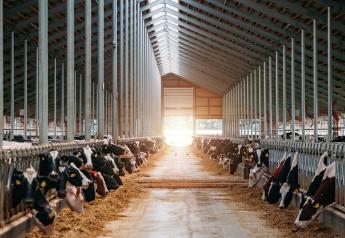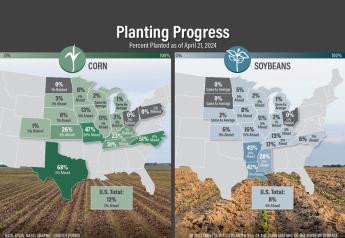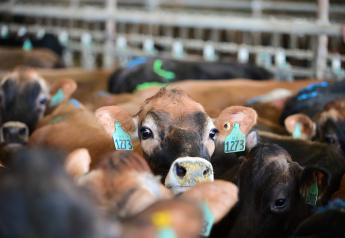Preventing Calf Scours
Calf scours, the diarrhea seen during the first 30 days of a calf’s life, is caused by a variety of bacteria, viruses and parasites. But the exact cause is less important than prompt treatment, says a University of Missouri professor of food-animal medicine.
The primary reason calves get sick is dehydration, says John Middleton. With an inflammation of the gut, they lose fluids and electrolytes.
“Once they start to get a liquid stool, we need to keep up with hydration and electrolytes. That prevents them from getting severely ill,” Middleton says. “The most severely ill ones need to be taken to a veterinary clinic and treated with IV fluids, while calves that are standing and can still suckle can be treated with oral fluids and electrolytes.”
Most of the pathogens that cause scours are transmitted through fecal-oral contact. Middleton says that breaking that fecal-oral cycle is important to prevent scours, and environmental hygiene is a big part of that.
“Remove the calf from the contaminated environment as soon as possible after birth,” Middleton says. “What we’d like to do is have them calve and moved out to clean pasture.”
Middleton says age mapping within the groups is important. The pathogens tend to have a specific incubation period, so keeping calves within two weeks of each other lessens the chance of older calves infecting younger calves.
There still will be some exposure, so it’s important to make sure the calves’ immune systems are equipped for that by ensuring that calves consume an adequate volume of colostrum from their mothers.
Scours within three to five days of birth can be caused by enterotoxigenic E. coli that binds to their intestines. This increases secretion of sodium, pulling water into the bowel and causing diarrhea. After the first five days, enterotoxigenic E. coli doesn’t bind to the walls of the intestine.
But several viruses can cause scours after that five-day window. Although the specific virus can sometimes be determined by the age calves start showing signs, Middleton says you don’t need to know what’s causing scours to treat it. There are no specific treatments for viruses.
“Really, what we’re doing is treating the calf’s symptoms, much like if we were to get food poisoning,” Middleton says. “We’d hydrate ourselves with an electrolyte solution, but there’s usually no specific treatment for the diarrhea that might be associated with food poisoning. It is much the same case when a calf gets the scours. We’re trying to keep it hydrated so its body can deal with the invading organism and clear it on its own.”
Preventing scours will depend on how producers manage their cattle, how much land is available, weather conditions and how many head are managed per acre. Middleton says the more cattle managed in the same amount of space, the greater the likelihood of fecal-oral pathogen transmission.
Moving feed sites around rather than feeding in the same place can help decrease fecal-oral contact by reducing environmental contamination with potential diarrhea pathogens, Middleton says. He also suggests producers unroll large round hay bales to increase the feeding area.
Source: University of Missouri Extension







